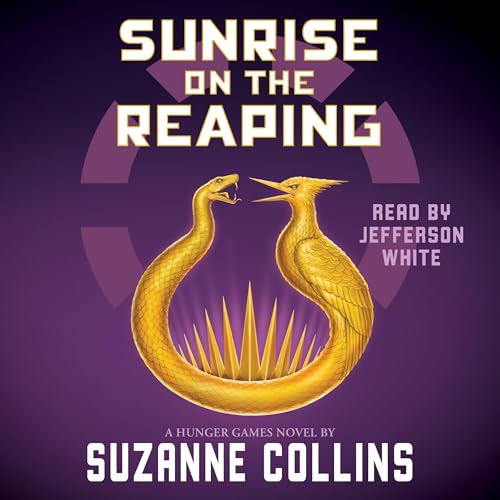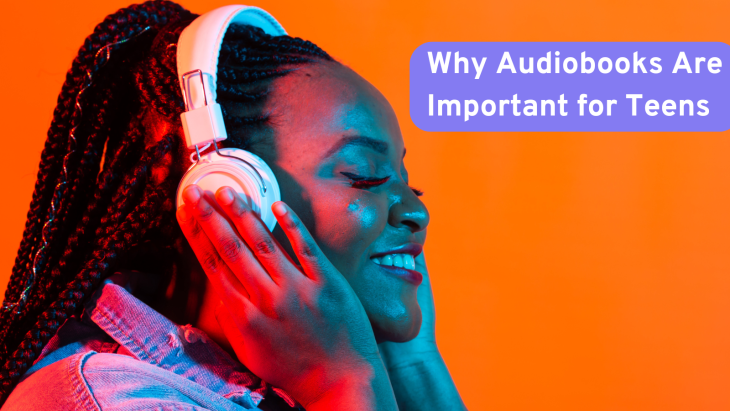Why Audiobooks Are Important for Teens
Imagine a teenager who’s never finished a book but listens to entire fantasy sagas, such as George R. R. Martin’s A Game of Thrones or Andrzej Sapkowski’s The Witcher novels, on their phone. Audiobooks are quietly revolutionising how young people experience literature.
With national reading enjoyment and frequency declining - from 43.4% to 34.6%, according to the National Literacy Trust’s Annual Literacy Survey - it’s more important than ever to reignite teens’ and young adults’ love of reading – and audiobooks could prove the perfect medium.
Far from being mere entertainment, audiobooks are transforming access to reading in this age group, particularly for teens with special educational needs and disabilities (SEND).
Audiobooks and the developing teenage mind
Teenage years encompass vitally important stages of brain and personal development, with literature often supporting and encouraging self-discovery. Audiobooks offer an incredibly immersive storytelling experience – especially dramatisations – which help to support emotional literacy and self-reflection.
Research from the Scottish Book Trust suggests that emotionally connecting with fictional characters can help readers and listeners empathise with others, while further understanding themselves.
Fiction and audiobooks offer a safe space for teens to ‘try on’ different identities throughout the many fantastical and fictional worlds. This is especially valuable during such a turbulent and transformative stage of life.
However, teens who struggle with concentration or reading stamina can miss out on this often-formative experience, whereas audio can prove a more accessible entry point.

Breaking barriers for teens with SEND
Reading a physical book or even an eBook can prove challenging for a wide range of young people with conditions such as dyslexia, ADHD, autism, visual impairments and processing disorders.
This can often have a knock-on effect on reading comprehension and levels, along with negatively impacting reading enjoyment.
Audiobooks help:
- Level the playing field by removing decoding barriers – allowing teens to access higher-level texts. This helps close the reading gap when it comes to language development, fluency, comprehension and reading vocabulary.
- Support auditory learners and those who benefit from multisensory input - helping to increase vocabulary, word exposure, fluency and pronunciation – especially when listening to audiobooks with a wide variety of narrators with different accents.
- Close the gender gap – according to research from the National Literacy Trust, the gender gap in enjoyment was smaller for listening to audio than for reading or writing.
Supporting mental health
Audiobooks can help soothe anxiety and embarrassment when it comes to reading for educational purposes, especially for those with dyslexia and ADHD who find it a challenge to decode words in traditional reading.
In a time where screens dominate the classroom and life in general, audiobooks are also a great alternative to help screen fatigue, allowing students an environment to escape into another world, giving their eyes and brains some much-needed rest from devices.
In fact, audiobooks helped 52% of children and teenagers relax or feel better when they were stressed or anxious, according to research from the National Literacy Trust’s 2024 listening report. Being transported to another world can entertain and comfort teens, whilst also giving them an opportunity to escape the challenges and stresses of their everyday lives.
The medium can also be integrated into routines, whether it’s listening just before bed, on the walk after school or the morning commute. Through Listening Books membership, teens can access over 9000 audiobooks via the Libby app on the go.
Whether in the classroom or at home, integrating audiobooks into daily routines could be the key to unlocking a lifelong love of reading.

Where to start
Audiobooks aren’t just an alternative – they're essential for many teens. Whether your students are neurodivergent, SEND or just not a fan of print, audiobooks may prove the answer – and we’re here to help.
If you have a teen who claims they ‘don’t do books,’ we’ve got just the list to change their mind. From gripping audiobooks to blockbuster page-turners, these picks might just be the gateway to a whole new reading habit.
All titles are available via Listening Books membership, with access through the Libby app.
Recommended Listening:



